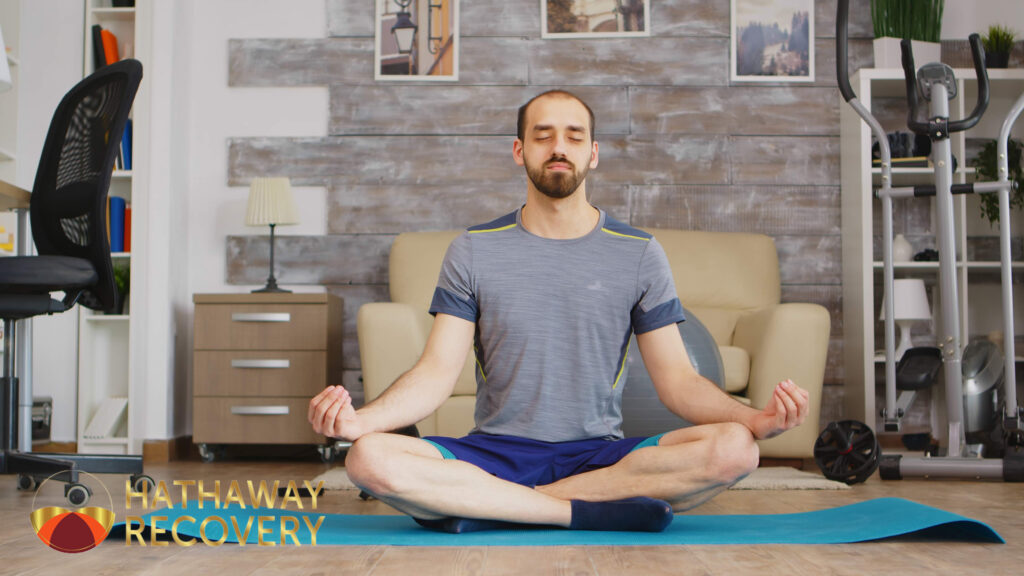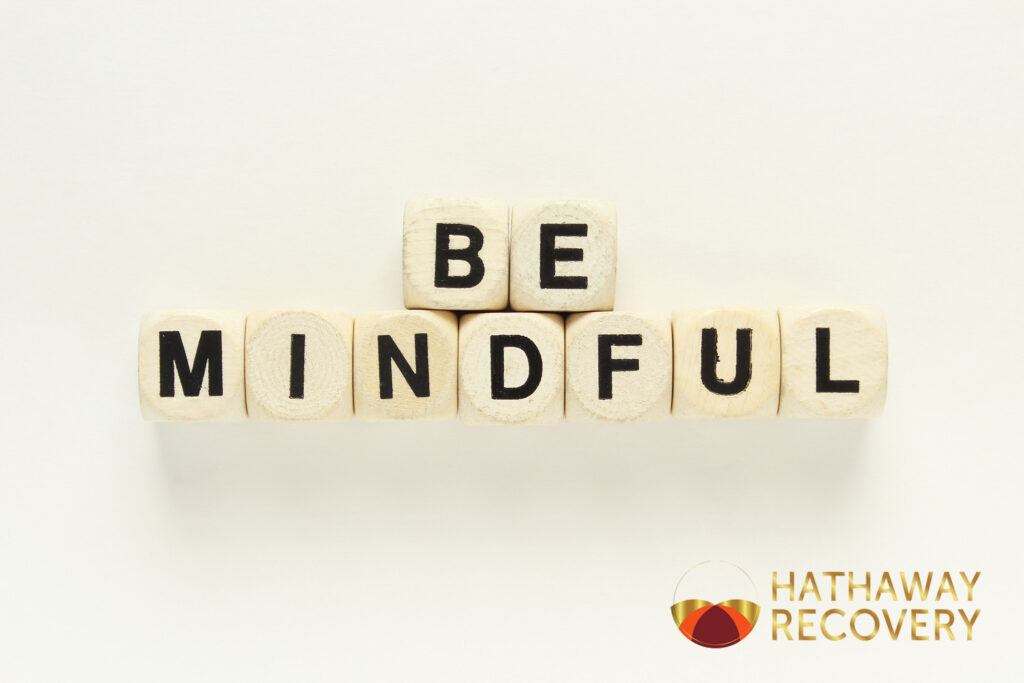Stress is a common symptom of addiction to alcohol or drugs. When someone struggles with addiction, they often experience daily stressors such as the inability to meet daily obligations, pressure to stop using drugs or alcohol, and other addiction-related factors.
Many treatment programs offer information on healthy ways to deal with stress. Mindfulness is a stress management technique that has grown in popularity among those who are recovering from addiction.
Mindfulness-based therapies have been proven very effective in treating drug and alcohol addiction. Mindfulness can provide a fresh perspective on addiction, reducing withdrawal symptoms and cravings. Regular mindfulness practice can increase a person’s recovery chances and reduce stress.

What is Mindfulness?
The act of mindfulness is to pay attention to what the moment has to offer. Accepting the present without trying to change it is the key to mindfulness. Mindfulness is essentially accepting the way things are at that moment.
People who are addicted to drugs or alcohol often use substances to try to escape their current feelings or to go mentally or emotionally somewhere else. By observing thoughts and emotions without judgment, mindfulness helps people stop trying to escape their current situation.
Stress is reduced when a person learns to accept and embrace their current state of mind or reality. Studies have shown that mindfulness practices over time can rewire and strengthen neural pathways associated with anxiety and stress.
Benefits of Mindfulness and Meditation in Addiction Treatment
Incorporating mindfulness into a program of recovery has many benefits. The ability to simply acknowledge and accept one’s feelings without reacting is a huge benefit. Addicts often act out their feelings immediately by drinking or using drugs. Sitting with emotions and resisting urges can help people better understand themselves and resist cravings.
Other benefits that a person in addiction treatment can experience through mindfulness include:
- The ability to suppress your cravings and not act on them
- A greater capacity for optimism
- Improved self-control
- Reduced stress
- The ability to deal with stress in a healthy manner
- Reduced anxiety and depression
- Better decision-making skills
- The ability to recognize warning signs of potential relapse
Many people do not realize the negative thought cycle that leads to substance abuse. The mindfulness treatment helps individuals face these thoughts in a calm and neutral manner. People are then able to stop negative thoughts and become more aware.

Meditation: Mindfulness-Based Stress Reduction in Recovery
One of the most popular mindfulness techniques taught in addiction treatment is Mindfulness-based Stress Reduction (MBSR). This method was created by Jon Kabat Zinn, Ph.D. It combines yoga with meditation and psychotherapy in order to teach people how to be mindful.
What are the benefits of MBSR? Studies have shown MBSR to help reduce stress, blood pressure and improve a person’s self-esteem. MBSR meditation also has been proven to reduce the dropout rate from alcohol and drug rehab programs. All of these benefits can increase the likelihood that a person will successfully complete a treatment program and maintain sobriety.
MBSR techniques are used with other forms of therapy in addiction treatment facilities. Cognitive-behavioral and holistic therapies, for example, may be integrated into a recovery program that also focuses on mindfulness.
What is MBRP, and what does it do?
G. Alan Marlatt, a researcher at the Addictive Behaviors Center of the University of Washington, and his colleagues developed a mindfulness-based relapse preventative strategy to assist people in recovering from addictive behavior.
Overview of MBRP
Relapse prevention based on mindfulness helps people in recovery from addiction to use mindful awareness and manage automatic, unhelpful responses to triggers.
Through MBRP, individuals learn how to step back, be in the present moment, and realize that there are many possible outcomes for a situation over which they can have some control. It is possible to respond to triggers so that they serve you rather than causing harm or damaging emotions.
The MBRP program is designed for those who have completed a first treatment program and wish to maintain their lifestyle changes.
You can create a mindfulness practice that will support your recovery rather than falling back into old patterns when you are faced with old or new triggers.
How to Practice MBRP
Here are the steps for practicing urge surfing to help you manage cravings and urges. This is a technique best learned with the help of a mental health professional or addiction specialist and possibly in a group.
Step One
Be aware of your cravings and urges as soon as they begin. Staying in the moment and recognizing changes in your feelings in real-time will help you achieve this.
Step Two
Name it as an urge, a craving, or a mental experience.
Step Three
Imagine that your desire or urge is a wave. It will roll in, reach a peak, and then fade away.
Step Four
Focus on your breathing as you imagine your craving or urge fading away. To slow down your breathing, breathe in for seven counts and out for eleven.
Step Five
As you breathe slowly, watch your urge or desire grow. Allow it to pass over time slowly without trying to control it.
Step Six
As you feel the urge or desire pass, take note of your experience. Notice how you made a different decision than before. As you move forward, it becomes easier to recognize opportunities to practice mindfulness.
Step Seven
You can repeat the steps above as many times as you need to whenever your urges and cravings are triggered.
You will find it easier to control your urges and cravings as they rise and fall. You will be able to recognize that these cravings or urges are only temporary, and you can ride out the wave until they subside.
Find a treatment program that incorporates mindfulness and stress management
In recovery, mindfulness can be a powerful tool. Accepting and embracing one’s present reality can help a person move forward rather than feeling overwhelmed. It is beneficial to learn how to cope with stress in a healthy way through mindfulness, not just during treatment but throughout a person’s lifetime.
Hathaway Recovery provides a customized treatment program that incorporates evidence-based treatments such as experiential and behavioral therapy. Our holistic healing program will help you to grow as a human being and give your life a new start.
Your privacy and comfort are important to us. Our luxurious, state-of-the-art facilities will make you feel relaxed. Hathaway Recovery’s professional and compassionate staff is always ready to help you.
Our center offers private rooms, individualized attention, and treatment programs. The best specialists are on our staff. Our mission is Renewing and Rebuilding Lives.
Call the Admissions Department (909) 971-3333 with any questions.
The information is completely confidential.
Do not miss out on the opportunity to improve your life.
- Individual Counseling
- Group counseling
- Family Drug Education
- Relapse Prevention Therapy
- Counseling for grief






